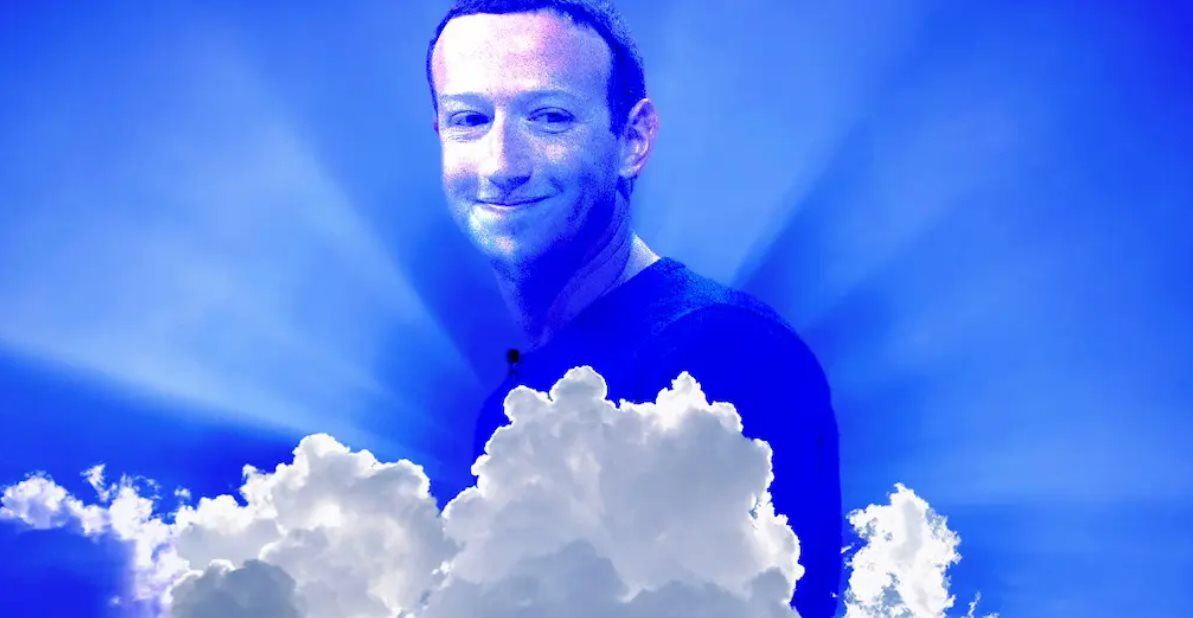Virtual universe: Mark Zuckerberg’s desire to build a ‘digital heaven’ to become immortal?
- Tram Ho
Not for the revolution to work or a great desire, Mark Zuckerberg burned billions of dollars into the virtual universe just to hope he could be immortal.

When Facebook turned Meta, CEO Mark Zuckerberg first announced his metaverse vision, he was immediately hit with “nobody needs that” talk from general public. In fact, virtual reality – the technology at the heart of the virtual universe is not exactly that trend, and the technology is still far from what it takes to give users a real experience.
After about a year, with a few buzzy partnerships, a Meta Connect conference, and $15 billion, the public is still asking the same questions. The technology is not yet available, and it seems that the public does not want to participate in the virtual world that Mark created. Everyone has social media, has Zoom, Google and Slack for work… Where do we need to revolutionize connectivity, why do we need a new future of work?
According to tech expert Emily Gorcenski, to really understand Facebook’s metadata push, we have to stop asking ourselves what we might be asking for. Maybe Metaverse isn’t about us – it’s about Zuck himself, who in his eyes isn’t just about solving problems or other hardware and software hurdles. He wants to solve his own mortality problem and he wants to do so by literally building “heaven”.
On Twitter, Gorcenski once wrote: “To understand the Metaverse, it means you have to understand that rich tech enthusiasts really believe they will be able to upload their consciousness before they die.”
“Metaverse wasn’t built to revolutionize remote work. It was built because these people believe they can build heaven. And you know who built heaven? Only gods. “.
While that thought may sound extreme, it’s not too outlandish. The rich and famous have long been known for their obsession with eternal life and those endeavors, whether illusory or real, are almost always connected with technology and creators. it. Billionaire Peter Thiel is said to have thought of finding a way to give life-prolonging blood transfusions from young people. Amazon founder Jeff Bezos is actively funding the development of immortal technology.
And now, Zuckerberg, who has spent most of his life turning people into datasets, it seems he also wants his consciousness to last forever in a digital world created by himself. design.
Zuckerberg’s quest to become a digital god will certainly go beyond his colleagues’ supposedly petty dreams of pushing their mortal bodies to live a few more years. And of course, for being a god, Gorcenski refers to the theory that “in Digital Heaven, better rewards can be given to those who contribute more data and more effort.” to make heaven work.”
“So,” added Gorcenski, “you have to do everything in your power right now to make Digital Heaven a reality.” Therefore, it is not crazy to see Facebook pioneering data mining.
Many people will assert that: “I will never be a mortal in the afterlife created by crazy people like Zuckerberg”. But in reality, pieces of this theoretical digital future have been and are happening, just to varying degrees, among the masses.
Look at the contemporary beauty industry, it’s somehow become a version of augmented reality: Aggregate standards are especially popular on Instagram, an app owned by Meta and run by Meta. it’s part of the Zuckerverse.
A more concrete example is “grief technology” startups (technologies that allow the re-creation of lost loved ones), which offer real people the opportunity to transform themselves into an interactive algorithm, regardless of the circumstances. death after death. Sure, these companies are far from being able to upload a user’s sense of reality, but the goal is inherently a version of immortality. If Zuckerberg can build the platform – a paradise as he wants, then these apps will certainly solve that problem. Meanwhile, other AI startups are trying to bring celebrities back from the dead.
Of course, this is just a bit of psychological analysis and certainly Zuckerberg has never stood in any Meta meetings and declared himself the lord of immortality. But the desire to live forever seems to be ingrained in Silicon Valley’s DNA. And with that in mind, creating a digital afterlife may always be inevitable.
“The most cruel thing that could happen to Zuckerberg,” Gorccenski wrote, “is that he dies, like a normal human being, like all of us.”
Source: Futurism
Source : Genk
